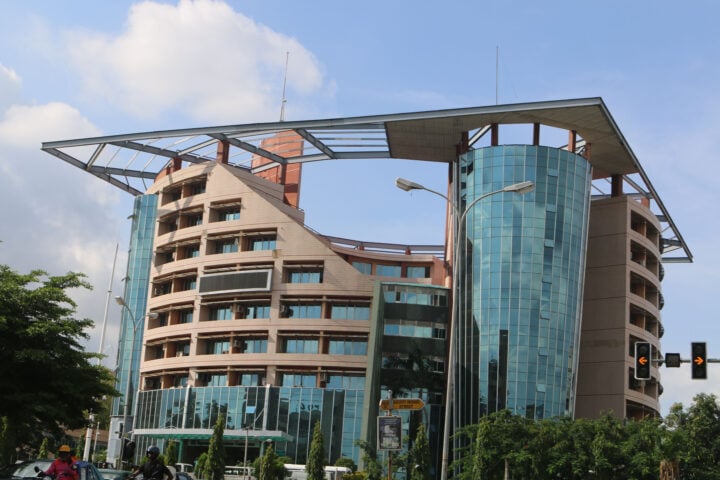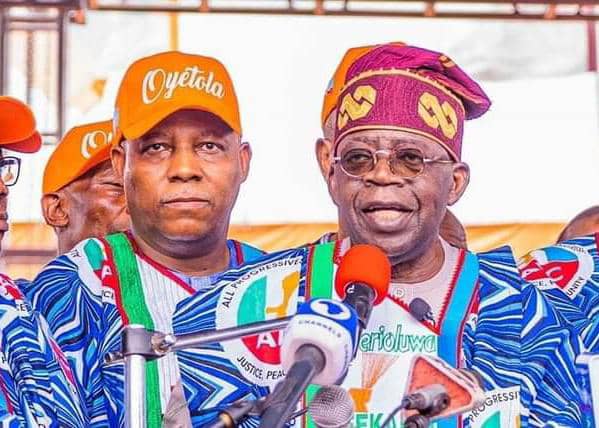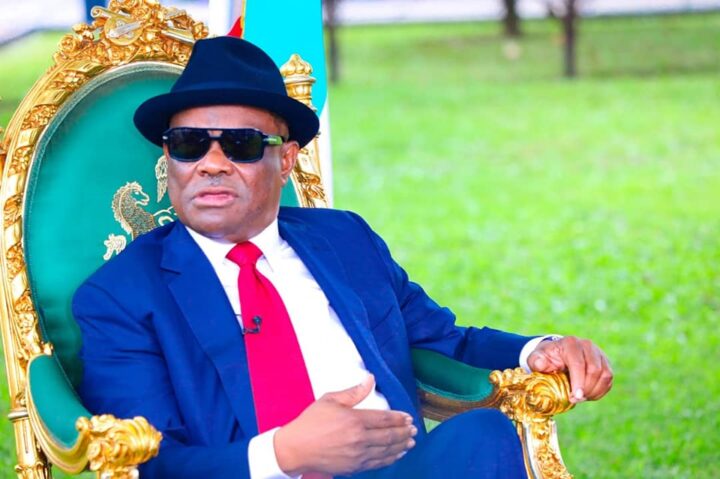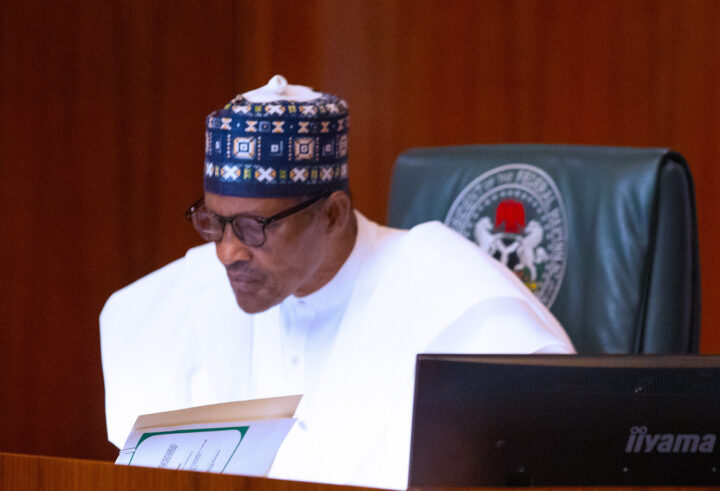The other day some idle lawmakers went to the Nigerian Communications Commission (NCC) on a single mission: to intimate the head that they have put in motion the process of merging some parastatals under the Ministry of Communications and Digital Economy. The parastatals include: the NCC, National Information Development Agency (NITDA), Galaxy Backbone and NigComSat. It occupied little space in the media. But that was more than enough for them to register their intention.
I can’t confirm whether there was any applause from any quarters. But obviously not mine. That piece of news ruined my day. I like to sit and enjoy my cup of green tea. Hot. Plain. No cream. No other thing. All at peace with myself. Any other thing at this time is an unsolicited intervention. But these people, they know how to make somebody boil over even in moments of tranquil or even cold.
This writer is aware that one of the recommendations of the Oronsanye Report of April 2012, was for some ministries and parastatals to be merged, and the civil service de-layered to ensure that no director stays in a position/office for more than eight years. But once the change of this administration happened to Nigeria in 2015, that Report was out through the window, and the change agents seized the intervening period to surreptitiously employ and load the civil service with their children and some other lackeys, a majority of who were hardly ready for the job foisted on them. It is roguish reductiveness and gratuitous insult to reason that in the final days in office, this government has just realised the beauty of that report and is canvassing an implementation. What of the people already planted in offices to enjoy a growth into the future and manage the various levers of the civil service and by extension the government even with scant knowledge? There is no doubt that some of these stories will wash up much later.
The ad-hoc committee in the House of Representatives entrusted with all this important job is chaired by Victor Danzaria (APC, Gombe). As reported the Rep member who feels very cool with this job said at the meeting: “The ad-hoc Committee is critically looking at these agencies , their existence and looking at possible synergies and mergers of these agencies to give effective service to Nigerians.
Advertisement
“One area is research, second is revenue generation and thirdly is regulatory functions and service delivery and at the end of the day, this is what Nigerians want.”
What a jumbled line of reasoning and the cheek of it all, to appropriate what Nigerians want!
In a well reasoned response, Prof Umar Garba Danbatta, the Executive Vice Chairman (EVC), pointed out the functions of the agencies listed in the consideration but counselled, matter of factly, that the lawmakers should seek expert opinions to review existing laws and operational frameworks.
Advertisement
Could it be a matter of coincidence that at this particular time, Mr Bright Igbako, pioneer secretary of the NBC, was working on a material titled: Need to Rework the Structure of Broadcast Regulatory Body in Nigeria: A Comparative Study? This material was published recently in some media outlets and I would implore the lawmakers to search it out.
The study takes a look at the Office of Communications (Ofcom) in the United Kingdom, the Federal Communications Commission (FCC) of the United States of America, the Independent Communications Authority of South Africa (ICASA), and the very exciting provisions of the Constitution of Ghana which provides for the National Media Commission (NMC).
The aforementioned are converged regulators, meaning that broadcast and telecom matters are handled under one roof, and this seems to be what is inspiring our lawmakers. But it’s not. I will make some explanations about my position.
“Structurally, ‘the FCC is directed by five commissioners appointed by the President and confirmed by the Senate for five year terms, except when filling an unexpired term. The President designates one of the commissioners to serve as the chairperson, only three commissioners may be members of the same political party.’ It is not a system where the winner takes all, Igbako observed.
Advertisement
The story of Ghana is even more interesting. The National Media Commission draws its 15members from different organisations and professions, including religious groups, and enjoys the latitude to do their job professionally.
Part of the law setting it up states that ‘Except as otherwise provided by this Constitution or by any other law not inconsistent with this Constitution, the National Media Commission shall not be subject to the direction or control of any person or authority in the performance of its functions.’
Igbako also points out that in Nigeria the Public Services Rules empower “a Minister to exercise control over parastatals at policy level through the Board of the parastatals”. This is the bane of regulation in the country and a painful situation that has led to pervasive regulatory capture in Nigeria.
It has been suggested in the past for the broadcasting and telecommunications sectors to come under one regulatory body. Such possibilities have never really been explored, mostly for reasons of turf control, not only by the employees in the two organisations, but by successive governments that want to micromanage the organisations.
Advertisement
Let me state here that what these lawmakers are proposing has nothing to do with effective regulation or what Nigerians want but a convoluted script that has long been foretold. A document hatched by some fellows who believe that every other Nigerian is dim-witted and stupid. Beyond regulatory capture, it is the final discombobulation of the NCC, attenuating it to a receding shadow of a regulatory body which, once upon a time, radiated glory to the international community.
Let’s see how this story sticks. The NCC is a regulator of the telecommunications industry. NITDA is a development agency instituted to promote the development of technology in Nigeria. Both Galaxy Backbone and NigComSat are government businesses that operate for profit and return same to the federation account.
Advertisement
Dr Isa Ali Pantami, who is the Minister of Communications and Digital Economy, used to be the Director General of NITDA. Since becoming minister, the NCC has deliberately been weakened for the ascendancy of NITDA as some functions that were previously undertaken by the NCC through the Universal Service Provision Fund (USPF) which is provided for by the Nigerian Communications Act of 2003, have been ceded to NITDA through some obnoxious manipulations in lawmaking.
Galaxy Backbone came into operations in 2006. It is described as the network and data hosting infrastructure platform for public and private sector organisations. Once formed, the ministries, government agencies and parastatals were pressured to do business with the organisation at commercial rates. It was discomforting then that the government should set up the agency to struggle for businesses with telecommunications operators who were rolling out services at huge cost. As it is, the government always wins.
Advertisement
NigComSat was a small project office at the National Space Research and Development Agency (NASRDA), which eventually became a government business, a limited liability company in 2004, responsible for the operations and management of Nigerian Communications Satellites. The agency is to sell the satellite space in Nigerian satellites and remit money to the federation account.
Unfortunately, NigComSat has become a prestige business which hovers on the propinquity of a scrap business. Since the launch of its main satellite, NigComSat-1, de-orbited a few months later, there is neither profit or even sales of reasonable proportions. The existence of that business, with the coming of NigComSat-1R, is real but achievement is vague and disastrous. NASRDA, which should be a home for the super brains in space technology, just like the National Aeronautics and Space Administration (NASA) of the United States, is not properly funded while NigComSat has become a loss-making distraction.
Advertisement
The call by the lawmakers is unpleasantly ill-timed. The NCC is a regulator, so designed by the Act, and not a business. The regulator should habour no accommodation for businesses or it will be distracted to death. It should not even have a place for a development agency. The lawmakers only have a dream, but a bad one. They and their puppeteers are only interested in the flagging fortunes of the regulator who, in every sense, needs help. Real help.
Views expressed by contributors are strictly personal and not of TheCable.







